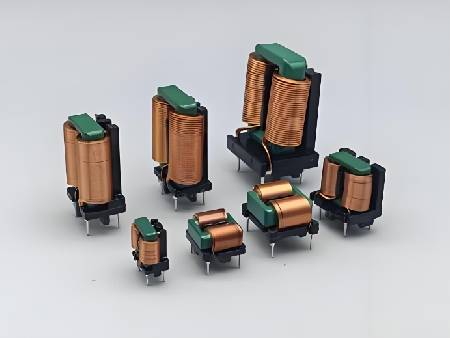Share to
Under ideal conditions, inductors in
energy storage system do not directly consume power, as their main function is to store and release magnetic energy. However, in practical applications, inductors may consume power for certain reasons. The following is an explanation of the reasons and specific operations for the power consumption of inductors:
Reasons for power consumption of inductors:
1. DC resistance: The inductor itself has a certain DC resistance, and when current passes through the inductor, the DC resistance will generate Joule heat, thereby consuming power.
2. Magnetic core loss: The magnetic core of an inductor will produce hysteresis loss and eddy current loss when the current changes, which will also lead to power consumption.
3. Reactive power: In an AC circuit, when the frequency of the current changes, the inductor generates a reverse electromotive force, which leads to a phase difference between the current and voltage, resulting in reactive power. Although reactive power is not directly converted into thermal or mechanical energy, it can also have an impact on the total power consumption of the system.

Specific operations to reduce inductor power consumption:
1. Choose the appropriate inductor: Choose the appropriate inductor according to the actual needs of the system, and avoid selecting inductors that are too large or too small. A small inductor may cause the system to malfunction, while a large inductor can increase unnecessary power consumption.
2. Reducing DC resistance: By improving the manufacturing process of inductors or using low resistance materials to reduce DC resistance, the generation of Joule heat is reduced.
3. Optimize magnetic core design: Optimize the magnetic core design of inductors to reduce hysteresis and eddy current losses. For example, magnetic cores made of air cores or low loss materials can reduce power consumption.
4. Control current variation: By controlling the rate of current variation, the magnetic field energy variation in the inductor is reduced, thereby reducing the loss of reactive power. For example, in AC circuits, PWM (Pulse Width Modulation) technology can be used to control the variation of current.
5. Improving system efficiency: By optimizing the design and control strategies of the entire energy storage system, the efficiency of the system can be improved, reducing unnecessary power consumption. For example, using efficient inverters, optimizing charging and discharging strategies, etc.
The power consumption of inductors in energy storage systems is a complex problem that needs to be addressed from multiple perspectives. Although inductors consume a certain amount of power during operation, this power consumption is usually small, and the power consumption in energy storage systems is usually relatively small compared to other devices. Therefore, by selecting appropriate inductors, reducing DC resistance, optimizing magnetic core design, controlling current changes, and improving system efficiency, as well as regular maintenance and calibration, the power consumption of inductors can be effectively reduced, and the performance and efficiency of energy storage systems can be improved.

